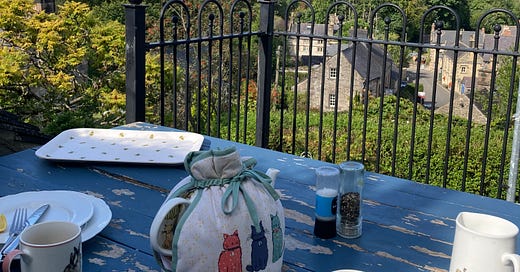Winster
I’ve been thinking about change and the way places and the people in them play a central role in the life of the nation and then fade to the edges of the national consciousness - sometimes for good reason, sometimes not. Winster and nearby Cromford, where I was last week, are cases in point.
Once the centre of the lead industry, Winster is now a quiet town in the Peak District which is little known besides its neighbours large and small. People have heard of, or visited, Matlock, Bakewell, Monyash, Youlgreave but Winster is a hidden gem. Cromford has claims to be the birthplace of the industrial revolution, being the place where Arkwright built the first water powered cotton mill and pioneered the factory system. Now it’s a quiet village with the mills as a heritage area, and a bookshop worth visiting but little else other than a certain charm. The business of the nation has moved on.
Winster was clearly built in an age when people in general had no transport, the houses crowding hugger mugger on the sides of a hill, connected by steep passages and snickets with little or no vehicular access - giving it a special charm for visitors, if a challenge with luggage and parking. A far cry from the way we now construct housing with roads and delivery access and our dependence on, even addiction to, motorised transport. Maybe future people will wonder at that in 100 years time. More change is certainly on the way.
The particular nature of Winster meant that arrival back at our accommodation was followed by a chance to rest the legs and have a cup of tea, although the preceding walks around the district may also have played a part. There are plenty of hills worth walking in Derbyshire. In event, tea seems to be a recurring theme for which I make no apology.
Winster Built when folk travelled on foot the village brooks no compromise with modern transport cars being found nestled in nooks and crannies patiently waiting for others to pass or clustered on the edge of town delivery vans blocking the streets coaches muscling through and all the while the people residents and visitors alike reach their dwellings by a maze of snickets tracks and steps labouring up to kitchen and the kettle



